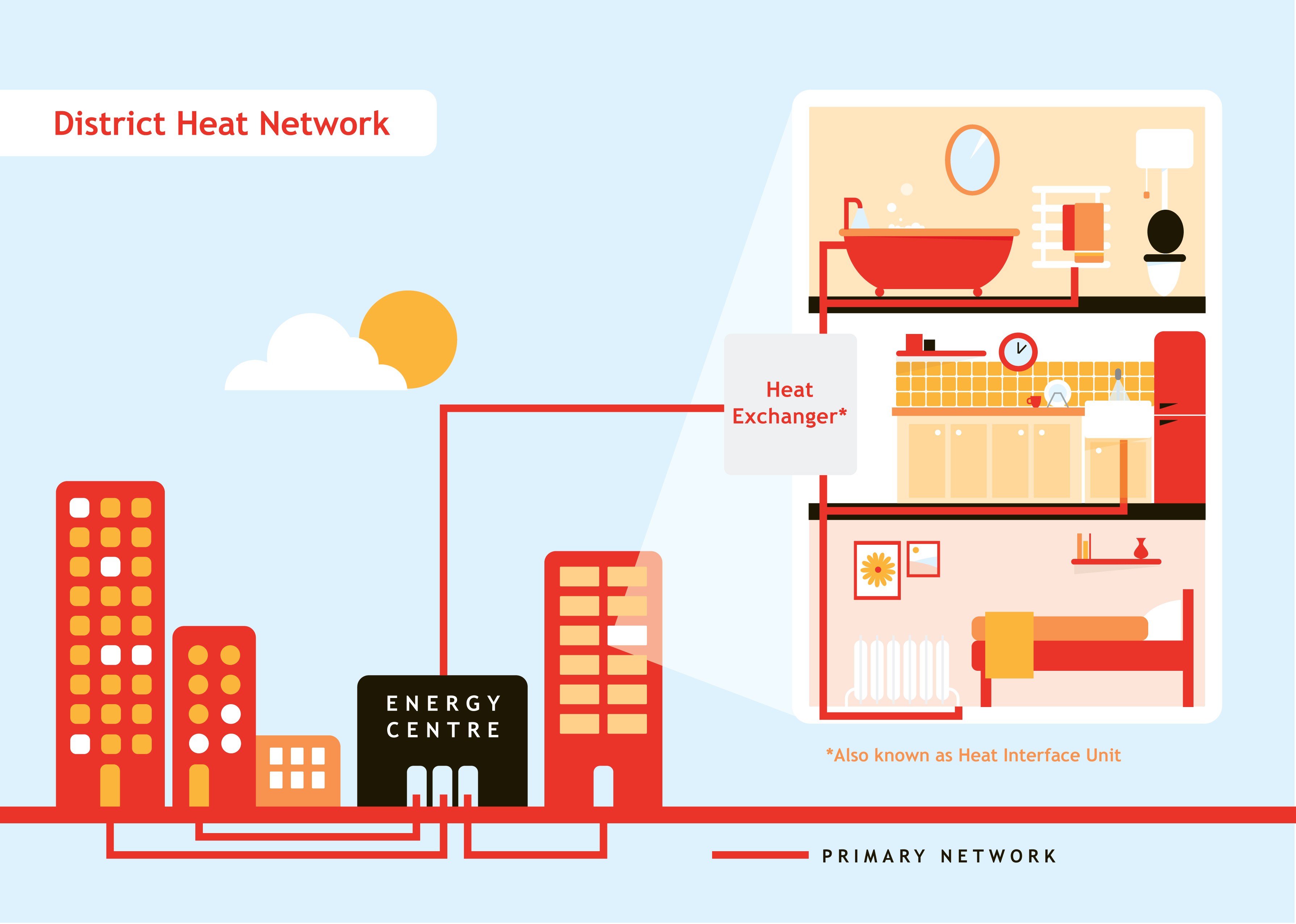
Local authorities and housing associations must put customer service at the heart of heat network plans. Bindi Patel, Head of Scheme at Heat Trust, explains how the scheme can work with landlords and councils to deliver better outcomes for customers living on heat networks.
Heat networks will play a huge role in the shift towards creating an affordable, low carbon energy system. The Government’s Heat Networks Investment Project is providing an opportunity to create a step-change in the development of heat networks, with £320m of dedicated capital funding for up to 200 projects.
The new Clean Growth Strategy has reaffirmed the importance of heat networks, with each scenario factoring 17-24% of heat demand being met by heat networks. The Scottish Government also recently consulted on plans for dedicated heat network zones to facilitate deployment. On a local level, planning policies over the past decade have contributed to growth in the number of heat networks in cities and large towns — especially for high-density developments.
Growth in the market and funding commitments are very welcome. When designed, installed and operated well, heat networks can provide reliable, low carbon and cost-effective heat and hot water. However, it is crucial that in the pursuit of creating technically excellent and ultra-efficient networks, we do not overlook the most important factor in growing the industry — delivering good value and a great service to consumers.
The scheme
Heat Trust’s key concern is ensuring that heat networks deliver excellent outcomes for customers. That means making sure that the promises made in design briefs and planning applications translate into a service that end users can trust. Heat Trust is a stakeholder-led customer protection scheme launched in 2015. It sets robust customer service standards for the heat network sector, building on standards in the gas and electricity markets.
The scheme already covers 51 heat networks and more than 30,200 customers. It provides an independent dispute resolution service for consumers through an agreement with the Energy Ombudsman. The organisation works with its Stakeholder Committee to monitor customer service performance and identify ways to drive up service standards. Heat Trust believes that all heat networks should be required to meet the standards set by the scheme as a condition for receipt of public funding. This would ensure that customers, regardless of which heat networks they live on, are assured a consistent level of service. Heat Suppliers can further tailor their service by building upon these standards.

Greater transparency
There is little publicly available information on heat networks. We have no concrete stats on the number of networks in the UK, or the standards of service each network is meeting. Heat Trust wants to improve transparency in the market. By monitoring the heat networks registered with Heat Trust, we are starting to build an evidence base on how heat networks are performing and the service that customers are receiving.
Through its annual report, Heat Trust gives a snapshot into the issues that are concerning customers and highlights areas where attention should be focused to support customer service improvements. Almost three quarters (74%) of complaints referred to the Energy Ombudsman related to issues around billing or back-billing. More than half of complaints about billing related to standing charges (54%). Complaints also indicate that customers are not always informed that a property is on a heat network prior to moving in.
The report found that clear communication and more transparency on heat charges are key to improving customer satisfaction moving forward. Heat Trust believes that industry, developers, landlords and estate agents should work collaboratively to ensure a consistent approach to informing customers when a heat network is present. This would involve supplying customers with the current tariff details and a sample Heat Supply Agreement prior to their agreeing to purchase or rent a property. As planning authorities, councils can play a key role in requiring developers to demonstrate how they intend to ensure their development will deliver robust customer service and protection standards. Requiring these schemes to register with the Heat Trust will ensure customers on these networks have access to consistent service standards.
Data metrics
The report also found variations on how data metrics are interpreted by different suppliers, highlighting the need for an industry-wide performance framework. Heat Trust has urged the Association for Decentralised Energy to continue its work on a technical compliance framework for the sector, which will include performance metrics.
To date, Heat Trust has mainly focused on the part of the sector most in need of attention, the private sector, where no independent complaint resolution service existed. But a key objective for Heat Trust is to be available to all heat customers. A consultation will soon be launched on plans to change our scheme rules so heat networks that do not provide Heat Supply Agreements can apply to register with Heat Trust — providing that terms of service are clearly set out in a separate document. Heat Trust is keen to engage with as many housing associations and councils as possible on the proposed changes, which we hope will improve access to Heat Trust.
Heat networks have the potential to play a major role in the decarbonisation of heating — providing reliable, low-carbon and cost-effective heat and hot water. If the market is to grow, however, the issues around communication and transparency must be overcome. We must not forget that it is customers that will give us the mandate to change. Heat Trust is looking forward to working with local authorities and housing associations to address these challenges.








